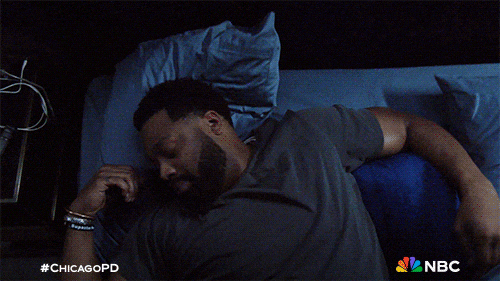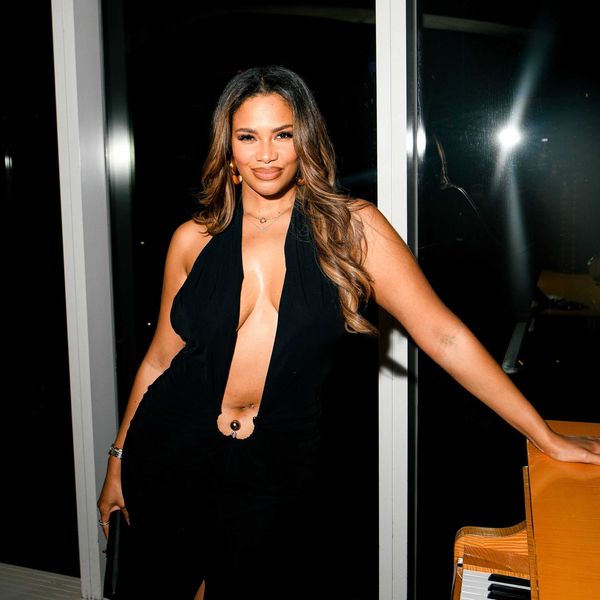
It’s officially Miss Keri, Baby season again—and if you ask us, it’s been a long time coming. After 15 years away from the music scene, Keri Hilson has returned not only with a brand-new album but also a captivating new role in Lifetime’s Fame—the latest installment in The Temptations film franchise.
Between the album We Need to Talk: Love and her leading role in Fame, this isn’t just a comeback—it’s a rebirth. The Grammy-nominated singer-songwriter turned actress is letting us into her world like never before, unpacking themes of vulnerability, healing, and inner strength with grace, grit, and raw artistry.
Now streaming on Lifetime, Fame follows two superstar sisters—played by Keri and singer/actress Keshia Chanté—as they navigate the cost of stardom, sibling rivalry, and the dark side of desire. The film also stars Romeo Miller, Ecstasia Sanders, Nathan Witte, and Sophie Carriere, and is executive produced by Derrick Williams and Adriane Hopper Williams of the Seven Deadly Sins franchise.
As for the music? We Need to Talk: Love is a three-part album (Love, Drama, Redemption) that tells the story of a woman who’s been through it—and has risen from the ashes. “It was time to speak for myself,” Keri says.
We sat down with Keri to talk about her return to music, her passion for acting, the emotional depth of Fame, and how she’s learning to care for herself amidst the chaos.
From R&B Queen to Drama Star: Keri Gets Into Character
“Even though she’s famous—as am I—it was really her humanity that I wanted to portray.”
Keri plays Cherish, one half of a superstar sibling duo who must confront their fractured relationship in the wake of a traumatic robbery. For Keri, the role was more than a character—it was a psychological study.
“I enjoy departures from reality. That’s why I love acting,” she shares. “Psychology is one of my favorite things in life. I became a writer because I’m an observer of human nature, emotion, and behavior. I think I did a good job showing her humanity.”
The Fame Isn’t Always Worth the Price
“Keep the main thing the main thing.”
Keri doesn’t sugarcoat the industry. When asked about what Fame reveals about the dark side of celebrity culture, her answer is clear:
“It’s a cautionary tale. It reminds you to keep your family close and not allow anything to come between them—especially in pursuit of success. Keep the main thing the main thing. For me, that’s family, love, spirituality, and values.”
Three Chapters, One Story: Love. Drama. Redemption.
“I’ve shed the fear. It was time to tell my own story.”
Released April 18th, We Need to Talk: Love is Keri’s first album in 15 years—and a deeply personal one at that. The three-part project (Love, Drama, Redemption) represents a timeline of healing and growth.
“I’m finally in a place where I’m able and willing to open up more,” she says. “For a while, I became really guarded—shell-shocked, even—after making mistakes in the public eye. Whether it’s all your fault or not, the scrutiny takes its toll. But now, I’ve shed that fear. It’s time to tell my story.”
Cooking, Walks, and Recalibrating in the Chaos
“I’m not doing the best job—but I’m doing what I can.”
Between eight-hour rehearsals, press runs, and music releases, Hilson admits she hasn’t quite figured out the balance yet—but she’s trying. For her, the key is carving out small rituals of normalcy.
“I enjoy cooking. That’s my sanctity,” she says. “I’ll go home, take my makeup off, put on my rehearsal clothes, and cook a meal. I take walks. I run. These little things help me feel like myself again.”
Art Imitates Life (and Album Tracklists)
“Cherish goes from Love… to Drama… to Redemption.”
Asked which album chapter her Fame character would fall into, Keri doesn’t hesitate. “She fits into all three,” she says. “You see her go from love, to drama, to redemption. That arc mirrors the journey of so many women who’ve had to navigate pain and find their way back to themselves.”
No Pressure, Just Art: Keri Wants You to Feel Something
“Just enjoy the art. That’s it.”
After all the time, patience, and healing, Keri isn’t asking for much. She just wants fans to press play—and feel something.
“I just want people to enjoy what they’re seeing and hearing. Enjoy me on screen. Enjoy me through their ears. People have waited, and I feel blessed by that. That helps me keep it all pure and simple.”
As Keri Hilson steps boldly back into the spotlight, it’s clear this era is all about alignment, artistry, and authenticity. With Fame airing on Lifetime and the first chapter of We Need to Talk: Love setting the tone, we’re more than excited to see what’s next.
As she continues to unfold the album’s next two chapters—Drama and Redemption—one thing’s for sure: this isn’t just a comeback. It’s a reintroduction. And we’ll be watching, listening, and cheering her on every step of the way.
Let’s make things inbox official! Sign up for the xoNecole newsletter for love, wellness, career, and exclusive content delivered straight to your inbox.
Feature image by AFF-USA/Shutterstock
Because We Are Still IT, Girl: It Girl 100 Returns
Last year, when our xoNecole team dropped our inaugural It Girl 100 honoree list, the world felt, ahem, a bit brighter.
It was March 2024, and we still had a Black woman as the Vice President of the United States. DEI rollbacks weren’t being tossed around like confetti. And more than 300,000 Black women were still gainfully employed in the workforce.
Though that was just nineteen months ago, things were different. Perhaps the world then felt more receptive to our light as Black women.
At the time, we launched It Girl 100 to spotlight the huge motion we were making as dope, GenZennial Black women leaving our mark on culture. The girls were on the rise, flourishing, drinking their water, minding their business, leading companies, and learning to do it all softly, in rest. We wanted to celebrate that momentum—because we love that for us.
So, we handpicked one hundred It Girls who embody that palpable It Factor moving through us as young Black women, the kind of motion lighting up the world both IRL and across the internet.
It Girl 100 became xoNecole’s most successful program, with the hashtag organically reaching more than forty million impressions on Instagram in just twenty-four hours. Yes, it caught on like wildfire because we celebrated some of the most brilliant and influential GenZennial women of color setting trends and shaping culture. But more than that, it resonated because the women we celebrated felt seen.
Many were already known in their industries for keeping this generation fly and lit, but rarely received recognition or flowers. It Girl 100 became a safe space to be uplifted, and for us as Black women to bask in what felt like an era of our brilliance, beauty, and boundless influence on full display.
And then, almost overnight, it was as if the rug was pulled from under us as Black women, as the It Girls of the world.
Our much-needed, much-deserved season of ease and soft living quickly metamorphosed into a time of self-preservation and survival. Our motion and economic progression seemed strategically slowed, our light under siege.
The air feels heavier now. The headlines colder. Our Black girl magic is being picked apart and politicized for simply existing.
With that climate shift, as we prepare to launch our second annual It Girl 100 honoree list, our team has had to dig deep on the purpose and intention behind this year’s list. Knowing the spirit of It Girl 100 is about motion, sauce, strides, and progression, how do we celebrate amid uncertainty and collective grief when the juice feels like it is being squeezed out of us?
As we wrestled with that question, we were reminded that this tension isn’t new. Black women have always had to find joy in the midst of struggle, to create light even in the darkest corners. We have carried the weight of scrutiny for generations, expected to be strong, to serve, to smile through the sting. But this moment feels different. It feels deeply personal.
We are living at the intersection of liberation and backlash. We are learning to take off our capes, to say no when we are tired, to embrace softness without apology.
And somehow, the world has found new ways to punish us for it.

In lifestyle, women like Kayla Nicole and Ayesha Curry have been ridiculed for daring to choose themselves. Tracee Ellis Ross was labeled bitter for speaking her truth about love. Meghan Markle, still, cannot breathe without critique.
In politics, Kamala Harris, Letitia James, and Jasmine Crockett are dragged through the mud for standing tall in rooms not built for them.
In sports, Angel Reese, Coco Gauff, and Taylor Townsend have been reminded that even excellence will not shield you from racism or judgment.

In business, visionaries like Diarrha N’Diaye-Mbaye and Melissa Butler are fighting to keep their dreams alive in an economy that too often forgets us first.
Even our icons, Beyoncé, Serena, and SZA, have faced criticism simply for evolving beyond the boxes society tried to keep them in.
From everyday women to cultural phenoms, the pattern is the same. Our light is being tested.

And yet, somehow, through it all, we are still showing up as that girl, and that deserves to be celebrated.
Because while the world debates our worth, we keep raising our value. And that proof is all around us.
This year alone, Naomi Osaka returned from motherhood and mental health challenges to reach the semifinals of the US Open. A’ja Wilson claimed another MVP, reminding us that beauty and dominance can coexist. Brandy and Monica are snatching our edges on tour. Kahlana Barfield Brown sold out her new line in the face of a retailer that had been canceled. And Melissa Butler’s company, The Lip Bar, is projecting a forty percent surge in sales.

We are no longer defining strength by how much pain we can endure. We are defining it by the unbreakable light we continue to radiate.
We are the women walking our daily steps and also continuing to run solid businesses. We are growing in love, taking solo trips, laughing until it hurts, raising babies and ideas, drinking our green juice, and praying our peace back into existence.
We are rediscovering the joy of rest and realizing that softness is not weakness, it is strategy.
And through it all, we continue to lift one another. Emma Grede is creating seats at the table. Valeisha Butterfield has started a fund for jobless Black women. Arian Simone is leading in media with fearless conviction. We are pouring into each other in ways the world rarely sees but always feels.

So yes, we are in the midst of societal warfare. Yes, we are being tested. Yes, we are facing economic strain, political targeting, and public scrutiny. But even war cannot dim a light that is divinely ours.
And we are still shining.
And we are still softening.
And we are still creating.
And we are still It.

That is the quiet magic of Black womanhood, our ability to hold both truth and triumph in the same breath, to say yes, and to life’s contradictions.
It is no coincidence that this year, as SheaMoisture embraces the message “Yes, And,” they stand beside us as partners in celebrating this class of It Girls. Because that phrase, those two simple words, capture the very essence of this moment.
Yes, we are tired. And we are still rising.
Yes, we are questioned. And we are the answer.
Yes, we are bruised. And we are still beautiful.

This year’s It Girl 100 is more than a list. It is a love letter to every Black woman who dares to live out loud in a world that would rather she whisper. This year’s class is living proof of “Yes, And,” women who are finding ways to thrive and to heal, to build and to rest, to lead and to love, all at once.
It is proof that our joy is not naive, our success not accidental. It is the reminder that our light has never needed permission.
So without further ado, we celebrate the It Girl 100 Class of 2025–2026.
We celebrate the millions of us who keep doing it with grace, grit, and glory.
Because despite it all, we still shine.
Because we are still her.
Because we are still IT, girl.
Meet all 100 women shaping culture in the It Girl 100 Class of 2025. View the complete list of honorees here.
Featured image by xoStaff
24 hours in a day. If there is one thing that we all have, no matter what, it’s 24 hours. And yet, if someone were to ask you to account for every moment of that time, would you feel good about your answers? Meaning — do you think that, for the most part, on a consistent basis, you make the best use of your time? Because if there is one reality that we all can’t avoid, it’s the fact that just like we get 24-hour days, once they are gone…they are gone forever.
And that’s why it’s so important to have some sort of time management regimen in your life — and that is exactly what we are going to dive into today, because, although some people like to deflect and act like there is no such thing as wasting time, that is absolutely not true.
I’ve shared before that waste means “to consume, spend, or employ uselessly or without adequate return,” and if you are doing things that don’t really give you an ROI on the minutes and hours that you will never see again, to a large extent, you are definitely wasting your time. One way to avoid doing that is to manage your time wisely, and one way to do that is to incorporate a quote by author Stephen Covey: “The key is not to prioritize what's on your schedule, but to schedule your priorities.” That’ll preach. A few sermons.
So, how can you know, without question, that you could stand to do some fine-tuning when it comes to time management? Well, for starters, if the following eight things apply to you on some level, you definitely could use some work on improving your time management skills. ASAP too.
1. You Spend Too Much Time on Social Media
 Giphy
GiphyReportedly, 10-15 percent of marriages are sexless. To be a part of category, it means that you have sex with your spouse no more than 10-12 times a year. What this basically boils down to is if you only engage in copulation once a month, you technically fall into this demographic (by the way, you’re considered to have a healthy marital sex life if you engage in coitus no less than once a week).
Where am I going with all of this? Well, whenever I have clients who are sexless and one or both of them tell me that they don’t have time for intimacy, one of the first things that I ask is how much time they spend on social media — and boy, you should see their faces. LOL.
There really is no telling how many times I’ve shared on this platform that most people spend somewhere around 2.5 hours, daily, on social media AND that most people are fine with intercourse lasting between 7-13 minutes. So nah, it doesn’t fly that if you’re not gettin’ it in with your partner, it’s because you’ve run out of time. A quickie alone gives you PLENTY of it.
It won’t feel that way, though, if you’re on social media for — shoot, the length of time of a movie (and then one sitcom episode). And that’s what you’ve got to watch about your time, in general, because if you are online a whopping 150 minutes each and every day — think about all of the other things that you could be getting done: exercising, meal prepping, goal-setting, catching up with family members and friends…so much, chile.
Social media as a form of entertainment or escapism is cool. Most experts say that beyond 30 minutes a day is leaning into it being somewhat counterproductive, though (unless you are getting actual work done on it). So yeah, if you want to become a master at time management, using self-discipline while being on your social media accounts is a great way to start.
Social media time management hack: Turn on a 30-minute sitcom and scroll as you watch it. Once it’s over — BING! You know that you’ve been on IG, TikTok or Facebook for 30 minutes straight.
2. You Are (Almost) Always Late
 Giphy
GiphyBack in my 20s, it was nothing for me to be late — if I showed up to something (that I said I was coming to) at all. And boy, was I being selfish, entitled and disrespectful of other people’s time. Yeah, you don’t really realize until you’re on the receiving end of someone’s tardiness (especially perpetual tardiness) just how irresponsible it can be to not show up at the time when you said that you would. Because really, if it — whatever “it” is — was gonna be, whenever, why was a time set in the first place?
Not to mention the fact that being late tends to have a ripple effect because, unless you and someone else were going to be together for an entire day, they typically have other things to do after leaving you — and your lateness could affect their already planned schedule.
Effective time management means that you plan things when you know that you can do them, you give yourself enough time to arrive on time — and if, for some reason, you’re going to be late, you respect the person enough to let them know.
Besides, people who keep schedules tend to be less stressed — and because they value other people’s time enough to not waste it, their relationships tend to be more easy-going too. That’s because respecting time cultivates trust; it makes you appear reliable which is always a good thing.
How to be on time hack: Add time to your time. What I mean by that is, if you told someone that you would meet up with them at 6:30 and you are 20 minutes away, add 20 minutes to that time. It helps when it comes to unexpected traffic and prevents you from rushing.
3. You Don’t Have Daily Goals
 Giphy
GiphyIdle hands are the devil’s workshop. King Solomon was once inspired to say that. Hmph. While we’re here, he also said that idle lips are his mouthpiece (just sayin’ — Proverbs 16:27). Anyway, as far as the hands thing, when you don’t have goals, it can be really easy to waste time — maybe because you’re bored, maybe because you’re antsy, maybe because, whether it’s consciously or subconsciously, you are looking for ways to use up your time. Problem is, when your time isn’t being utilized wisely, you can end up killing time — time that you will never get back.
It can’t be said enough that we all get the same 24 hours in a day and within each day, many productivity experts say that it’s important to have somewhere between 3-5 daily goals. It’s a good way to use your time wisely, to feel inspired and motivated and to make progress in various areas of your life.
How to set daily goals hack: Before turning in each night, pull out a journal or your phone and jot down three short-term goals that can be done the following day and two longer-term ones that you can start on. Make sure one long-term goal can be completed by the end of the week.
4. You Overestimate Your Multitasking Capabilities
 Giphy
GiphyMozart once said, “The shorter way to do many things is to only do one thing at a time." That said, I am always tickled whenever a female client (it is ALWAYS a female client — LOL) brags to me about how good she is at doing a million things at once. Listen, just because you can do that, it doesn’t mean that you are doing each of the things well. Science says so. And while some experts say that two is the limit and others say four, when it comes to checking things off of your to-do list, try to avoid doing several things at one time.
For one thing, it reduces the chance that you will make a mistake or overlook something. Also, it can prevent you from feeling anxious or frazzled. Yeah, even if you think that you are getting a lot done by multitasking, it can create unnecessary pressure and stress into your life and who needs that? It can also up your chances of doing things over — and that definitely can be a waste of your time.
How to multitask less hack: Meditate before starting your day. This means not looking at your phone, especially. Why? Because when you see all of the texts and notifications that are in it, that is typically what tempts you to attempt multiple things at once. Instead, ease into your morning quietly and calmly. Then prioritize what needs to be done and only do two things at a time.
Knowing that you were thorough is so much more satisfying than feeling like you did five things at once at an average level.
5. You Overwhelm Yourself
 Giphy
GiphyKnow what else can come from super multitasking — you find yourself feeling so overwhelmed that you become mentally and physically stagnant. In fact, many mental health experts say that it is very common to find yourself procrastinating whenever you are overwhelmed. Why? Well, when you sit and think about doing things that you may not want to do, that can overwhelm you.
At the same time, if you keep putting off what you need to do (good or “bad”), for days on end, until stuff piles up, the very thought of getting it all taken care of can tempt you to procrastinate — which only leads to a bigger pile of stuff to get overwhelmed with.
As a result, rather than what needs to be done, you intentionally seek out distractions that don’t really benefit you in the long run (more times than not).
How to stop overwhelming yourself hack: Write down what needs to be done in the order of their importance. Then go for a walk to clear your mind and commit to doing a couple of the things upon your return. Do them and then take another quick break before doing a couple more. The breaks will keep you from feeling stressed out from the weight of it all. Think of it like tearing down a mountain — a stone at a time.
6. You Don’t Have a Sleep Schedule
 Giphy
GiphyYou NEED sleep. Sleep IS NOT a luxury. And for goodness’ sake, stop saying that you’ll sleep when you’re dead? You’ll be dead when you’re dead. All of this said, I doubt that health experts will ever state that you won’t need between 6-8 hours of sleep every night. Sleep boosts immunity, so that you don’t “lose time” getting over being sick. Sleep gives you energy, so that you can actually get things done. Sleep helps with your cognitive function, so that your memory, concentration and productivity are intact, so that you can do things well.
A lot of people waste time because they aren’t performing well and it’s all because they aren’t getting the quality rest that they should. If you are one of these individuals, you should really consider implementing a sleep schedule. At the end of the day, all it means is you are prioritizing sleep — because you absolutely should.
How to start a sleep schedule hack: A part of what comes with having a sleep schedule is incorporating a bedtime routine. Check out “These Sleep Hacks Will Make Getting A Good Night’s Rest So Much Easier” for tips on how to make that easier for you.
7. Pleasure Isn’t Prioritized
 Giphy
GiphyRecently, a friend of mine wrote to me to say that their boyfriend (of quite some time) decided to, pretty much out of nowhere, break up with her a week before her birthday. When I asked her what her availability was so that I could treat her to lunch or dinner, she shared with me that most nights, she is working until 10:30pm. What in the world, chile?
If you don’t have a good and consistent work/life balance, you also low-key suck at time management because you absolutely were not put on this earth to do nothing but work all day and night long. SMDH. Pleasure is about enjoyment and some of your time is absolutely to be filled with that. If you don’t carve out leisure time to do things that make you happy — you 1000 percent suck at time management.
How to prioritize what pleases you (more often) hack: One hour a day during the week. No less than three hours, at least one day, on the weekends. Devote that time to nothing but what you enjoy doing. It keeps the stress levels down and also makes it easier to do the tasks that are less fun that need to be done.
8. You Don’t “Tithe” Your Time
 Giphy
GiphyAlthough tithe is a word that most of us don’t hear unless it’s in reference to church (Malachi 3), the word actually means “a tenth part or any indefinitely small part of anything” — and yes, when it comes to your time, it’s really important to tithe it out when it comes to things like your health regimen, self-care and decompression.
So, that said, be honest — do you tithe your time in the sense of making sure that within your 24-hour day, time is set aside for certain things? Now, to be fair, 10 percent of 24 hours is 2.4 hours, right? So, while some of these things might need to be combined — doing some yoga while binge-watching a show would qualify as “tithe timing.” So would taking a bubble bath and listening to your favorite podcast.
How to tithe your time hack: No matter what is going on, make sure that 2.4 hours, DAILY, is set aside for a bit of “you” time — you in the sense of doing what reminds you to prioritize yourself.
BONUS: You Remain in Cyclic Nonsense
I can’t believe that it’s basically been a year since I released my third book (what is time?). In it, there is a chapter entitled, “The Nice Guy Narcissist” and although the man’s name (and certain details that would make it clear to some folks who I am talking about) isn’t present, my circle knows who I am referring to.
Anyway, one of my friends loathes him so much that she doesn’t deal with him on any level — even has him blocked on social media. Meanwhile, a guy who has been basically wasting her time since she was a teenager (who she allows to put her through all sorts of mental and emotional roller coaster rides and she’s middle-aged at this point), they play the block/unblock game on a monthly basis.
That same energy she has for who hurt me? She needs to give her own self a triple portion for the clown in her life. In fact, I’ve said to her that I think she is actually projecting on “my guy” because she doesn’t have the courage to do the same with her own (ouch and amen).
And that is why the video above this point is so fitting. Yeah, I’m pretty sure that you’ve seen a hamster in a hamster wheel before. Hmph. All that running and not getting any damn wear. Cyclic patterns are just like that — and if you are in a cyclic situation, how can you NOT be wasting your time? What can going around and around and getting nowhere be a way of using your time wisely. You wanna master time management? Leave the people, places, things and ideas that are counterproductive AF TOTALLY alone. FOR GOOD.
A way to get off of your own hamster wheel hack: The thing that is your “wheel,” think about the ways that it takes you backwards and keeps you stuck. Then get REALLY HONEST about what needs to be done to move you forward. THEN DO THAT THING.
____
Author Micheal Altshuler once said, “The bad news is time flies. The good news is you're the pilot” — and as I wrap this up, when it comes to time management, truer words have not been spoken.
The beautiful thing about time management is you have the ability to manage your own.
Hopefully now you know how to do that a bit better.
So that you can get the absolute most out of your time.
Amen? YES.
Let’s make things inbox official! Sign up for the xoNecole newsletter for love, wellness, career, and exclusive content delivered straight to your inbox.
Featured image by LightField Studios/Shutterstock









